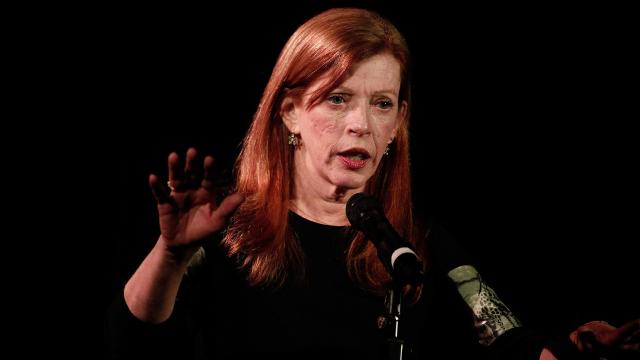I only remember one practical writing lesson from my three years as an English major: Whenever you can, put the best bits at the end of the sentence. Put the next-best bits at the beginning, and put the rest in the middle. This trick works in every kind of writing, and I wish I’d spent my university years learning more tricks like it, instead of pretending to read The Brothers Karamazov.
Photo by Joe Kohen / Getty
Writing is one of the easiest skills to learn without paying university tuition. You could get a pretty solid start just from this collection of writing advice from 20 prominent journalists. Metafilter user not_the_water gathered the advice from articles, online courses, podcasts, live talks and a drinking game. Some highlights:
- The Orchid Thief author Susan Orlean on finding story ideas: “The percentage of ideas you pursue, [vs.] the ones you actually believe will work as a story, doesn’t have to be high. In fact, it’s great to practise following an idea and saying, ‘Not gonna work.’”
- Pulitzer winner Anne Hull on writing about a culture as an outsider: “Be conscious of the distancing language that inhabits most newspaper stories. Set a goal for intimacy. As a reporter, be physically present to witness and absorb, if even for three hours.”
- “The Girl in the Window” writer Lane DeGregory on finding secret editors: “Finding people you admire, whether writers or editors or not, is important, especially if you don’t trust or respect the person who was assigned to you.”
- New Yorker “Talk of the Town” contributor Lillian Ross on expressing opinions: “Your point of view should be implicit in your choice of facts and quotes in your report… If you have anything to say, about the world, about life, look for a way to say it without making a speech.”
- Slouching Towards Bethlehem author Joan Didion on editing as you go along: “When I finish work at the end of the day, I go over the page that I’ve done that day, and I mark it up. And then I make the corrections in the morning, which gives me a way to start the day.”
- Criminal justice reporter Beth Schwartzapfel on anecdotes in dry factual stories: “I think of them as raisins in oatmeal, or the signs people hold on the sidelines of a marathon. They’re little surprises or jolts of pleasure to remind people of what they’re reading and why it matters.”
Certain themes run throughout: Narratives need character and tension. Collect story ideas everywhere and keep a file. Get your subjects comfortable around you and let yourself into their lives. Find the interesting details that can double as iconic examples. Write like you’re telling the story to a friend.
While the advice is especially targeted at journalists, just like that old sentence-structure trick, it applies to all kinds of writing. And unlike my English major, it’s free.

Comments